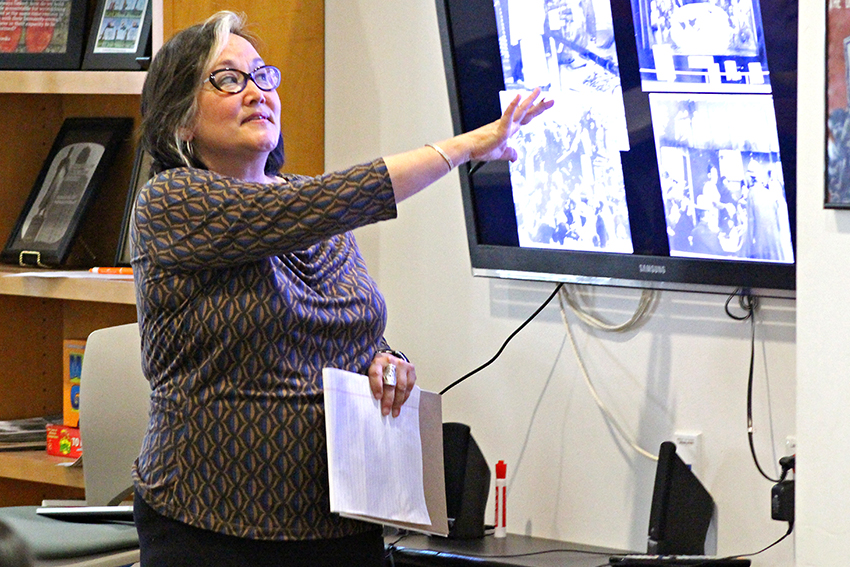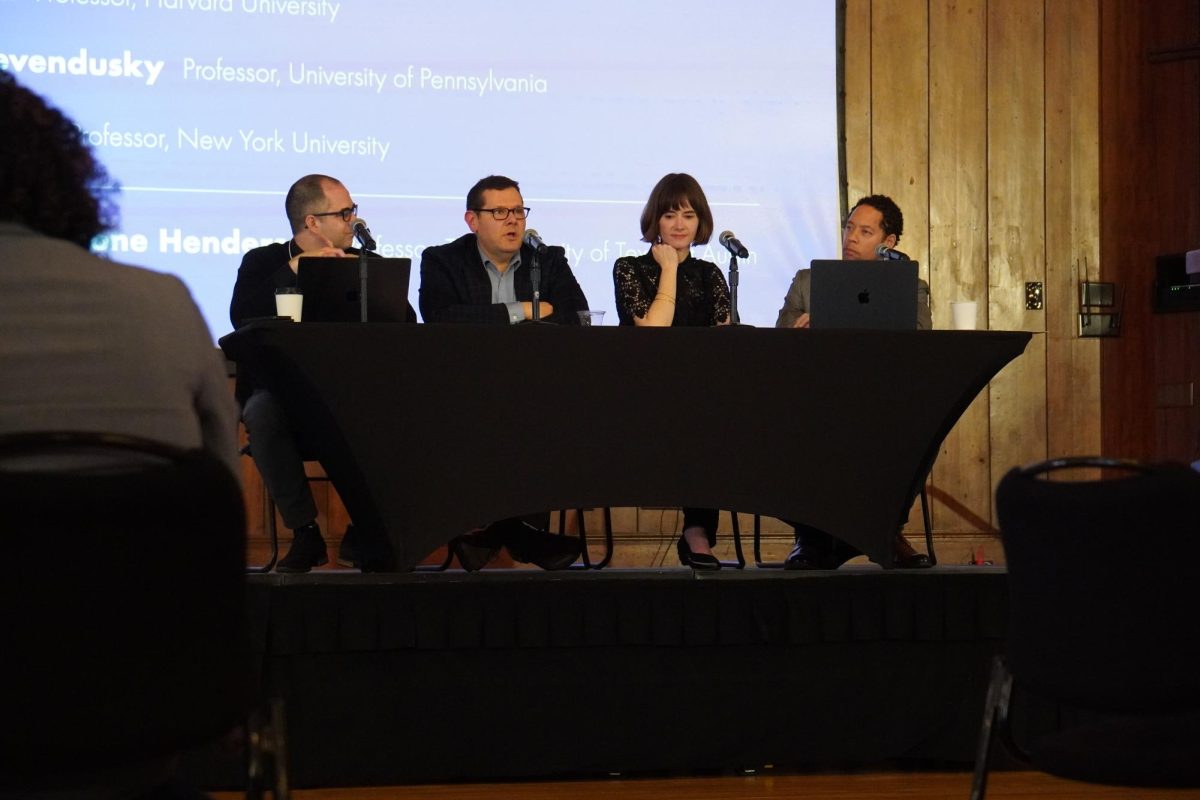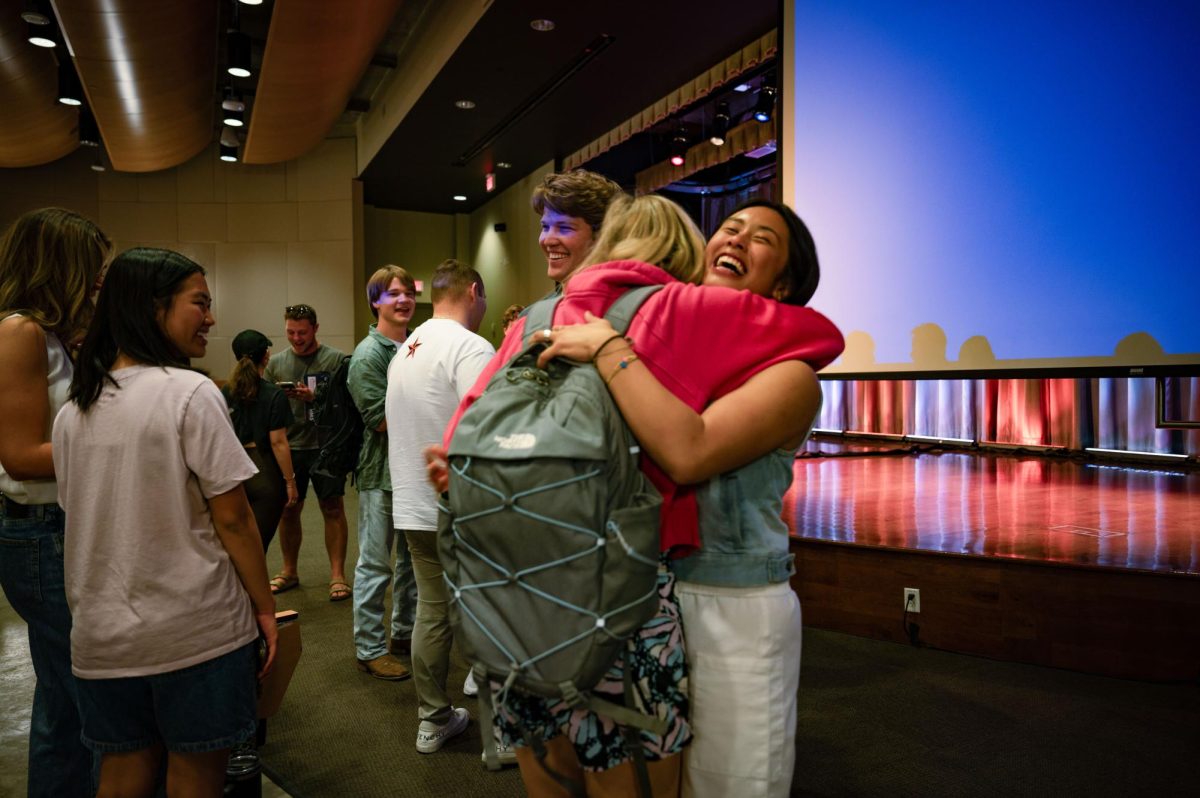Nancy Stalker, associate professor of Asian studies, gave a lecture on Japanese culture from the 20th century American mindset on Monday.
Stalker, who is primarily a cultural historian on modern Japan, said western knowledge of Japan is based in stereotypes of mystical spirituality, martial arts and ceremonies. In reality, Stalker said, such traditions have deep, complex meanings, and there is much more to Japanese culture.
“When [older American generations] think about Japan, they think about tea ceremonies and flower arranging,” Stalker said. “Art historians mystify these things. [They’re] not really looking at these things as institutions or dynamic. It’s all about beauty and spirituality. That really bugged me about studies in Japan.”
Edgar Olalo, international relations and global studies senior, said Stalker’s talk about cultural influences is applicable to multiple backgrounds. Olalo said generalizations are the reason Japanese culture, including its fashion, is culturally appropriated in America.
“The meaning behind cultural influences and things that brought people together, that was super interesting to me, especially things that I can apply to my background,” Olalo, an Asian-American, said. “Things like fashion, that’s one thing I’m really passionate about. And I like to look at things beyond just the surface level of fashion. That’s something that definitely came up to my mind when [she was] speaking about the deep cultural implications of things.”
Sona Shah, assistant director of the Center for Asian American Studies, said the lecture is one of many in an ongoing series to build bridges between students and
faculty members.
“We’ve been holding this series of faculty research talks for students to get to know our faculty, know a little bit more about Asian-American studies,” Shah said. “It’s a chance for students to get to know faculty outside of lectures and official academic stuff.”
Stalker said American citizens misinterpreted Japanese culture during their postwar occupation of Japan by enforcing Western twists on Japanese traditions.
“If you think about all the modern, powerful nations in the world, I don’t think there is one in which aesthetics and traditional culture place such a huge role in its national identity and in its international identity,” Stalker said. “It’s important to have Japan specialists, or people who know Japan deeply, writing about these things, or there could be all of these misunderstandings. When journalists look at [Japan] and don’t understand the larger historical context or social values, it just comes off as crazy stuff.”





















